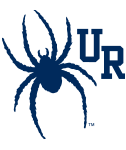This summer, I had the opportunity to conduct research at Harvard University’s Division of Medical Sciences through the Leadership Alliance Program, Summer Harvard Undergraduate Research Program. A mouthful! I spent the past 10-weeks working in Carla Kim’s Lab in Boston Children’s Hospital under the mentorship of Samuel Rowbotham, where I studied lung progenitor or lung stem cells. It was through this 10-week experience that I truly learned the most about myself, graduate school and life as a graduate student, and what it means and takes to be a successful scientist.
In Dr. Pollock’s lab, I study breast cancer and use chemical biology techniques. It was very different and challenging to jump into regenerative biology, learn new techniques such as immunofluorescence staining and single cell RNA sequencing, and to learn about the lung and stem cells from scratch. I consider myself a very curious person, which usually comes in handy when I am diving into a new research project. I will continue to ask questions until I feel I know what the project is about. Nevertheless, at some points, I felt frustrated and like that was a futile effort this summer. I was asking questions but there was so much more that I didn’t know. Even more frustrating was that just when I would begin to feel like I had an idea of what was going on, I would realize I wasn’t using the right terminology and tripped over my words when presenting my scientific work.
I was pushing myself very hard this summer because I felt that my PI and my mentor and even everyone else in the lab expected a lot from me and held me to a very high standard. I wanted to impress my coworkers, but I lost and really frustrated with myself most of the time. I felt like I was not meeting this high standard or that I was not at the same level as a graduate student in the lab in terms of presenting my research and talking about my science. I always felt like I was falling short. It made me doubt whether I would be well prepared for graduate school and that was the hardest blow to take since research is what I am truly most passionate about. Nevertheless, I kept pushing myself and at the end of the program, I was able to reflect on how I have grown as an individual and academically.
This was really difficult to get used to when I felt like I was giving my work my 110% effort and nothing less. At about week 8 of the program, it was really hard for me not to feel discouraged and I felt unenthused about my research. This was due to feeling unqualified for research and a lack of interest in my project. I began to set up meetings with other chemical biology professors in the area to talk to them about their research. Two amazing women I met with were Christina Woo and Sara Buhrlage. Through meeting with them, I immediately felt passionate and motivated about research again, realizing that I love chemical biology and biochemical research. I initially wanted to join Carla’s lab to get a change of scenery and explore other fields. I knew that I enjoyed the research and chemical synthesis that I do in Dr. Pollock’s lab, but I wanted to narrow down whether I liked biological research more than chemistry and to try something new. I did not want to apply to grad school thinking that I was interested only in biochemistry and chemical biology without exploring other areas. After working with stem cells and regenerative biology this summer, I can say that chemical biology and biochemistry is where I want to end up, since I enjoy biology but I also love chemistry.
Through it all, I am glad to have been given this opportunity to grow and to meet the amazing peers I had in my program, who I know I will continue to turn to for support over the years. I was exposed to a glimpse of the stressful life as a graduate student. I practiced and improved my networking skills. I met so many amazing people who will be mentors and individuals I turn to for help. I became more independent both in the lab and outside of lab. I also realized the necessity of communication within a lab and how I need to be proactive about my needs. I learned a lot about what research I would like to be conducting in graduate school and how to find a lab that fits me. I was able to identify where my weak areas are in terms of practicing how to think like a scientist such as: statistically analyzing data to determine the most important findings, forming an experimental plan to get results to answer a scientific question and creating hypotheses. I also learned how to give a good presentation or talk. I have now noted those areas for improvement over the next year. I am so extremely grateful to have been given this learning opportunity which has really pushed me to grow.
Thank you to Karina Gonzalez and Sheila Thomas for coordinating the program and being the best support team and mentors I could have asked for. Lastly, thank you to Carla Kim and Sam Rowbotham for mentoring me in the lab and really pushing me to grow as a scientist. The exposure to the rigorous work that I had this summer has helped me reflect on what steps I need to take in order to be the best scientist I can.



Recent Comments